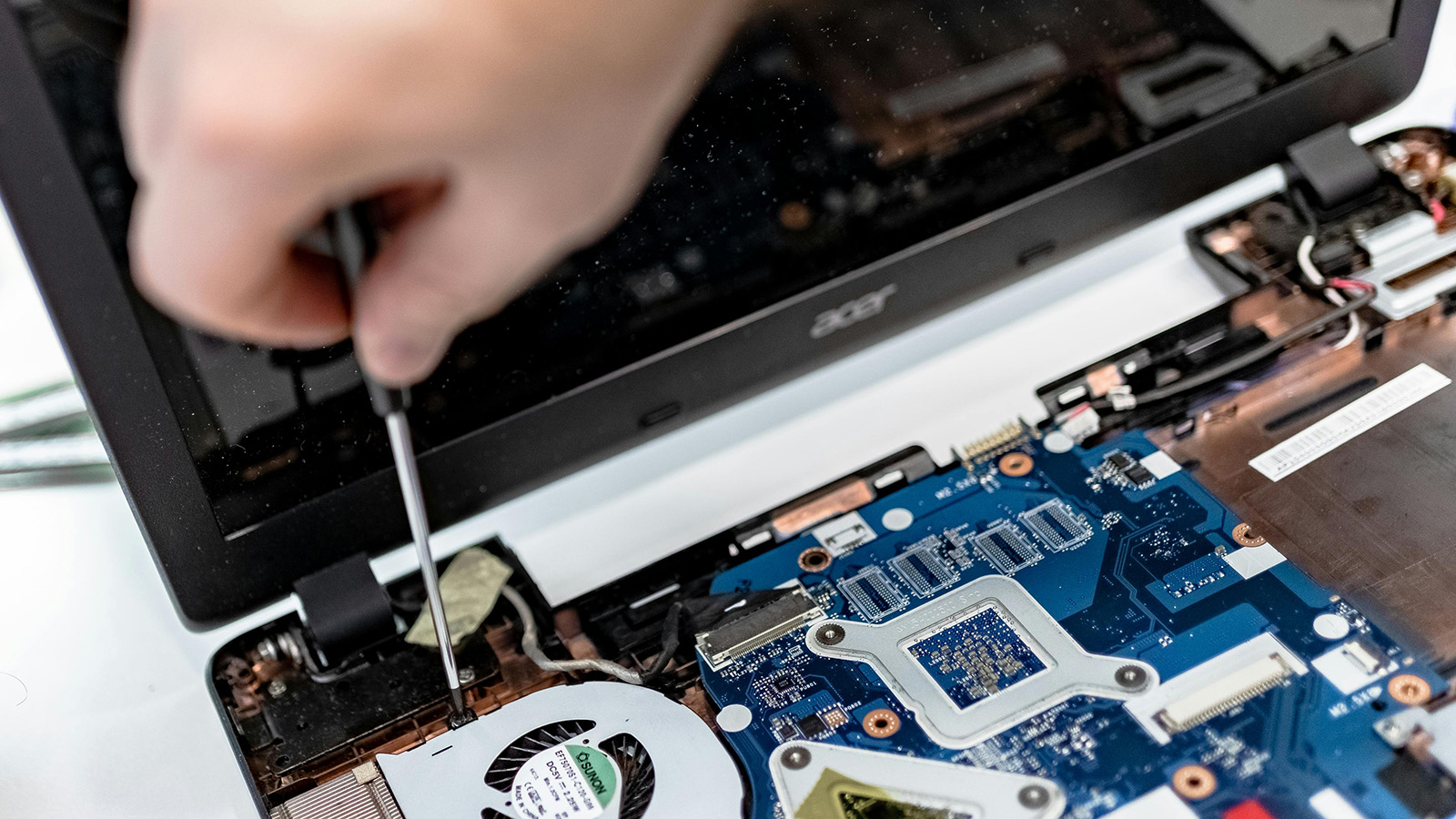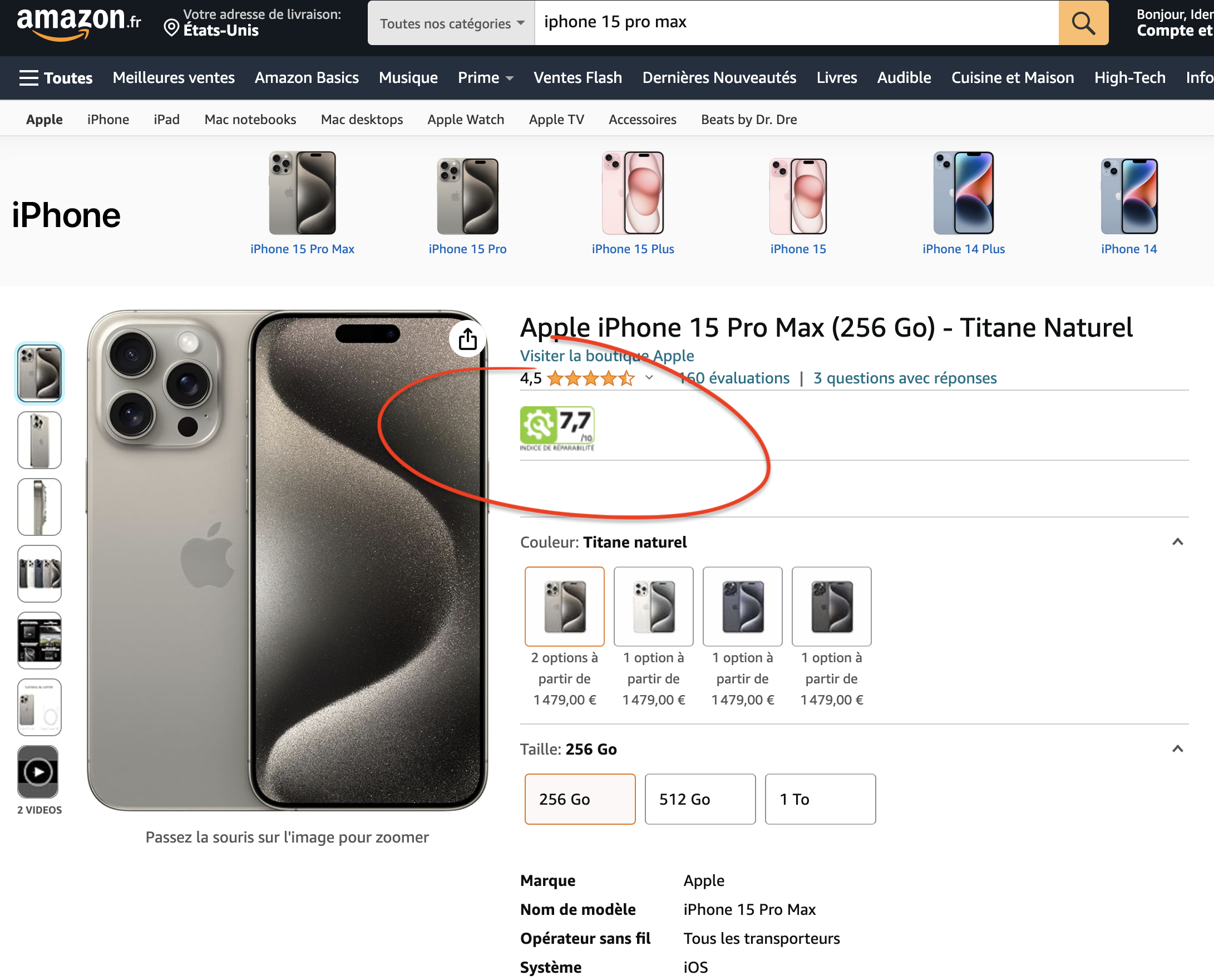
Just let us fix our stuff!
We are in Annapolis today to support HB1124/SB723, Right to Repair, or as we call it, the “Just Let us Fix our Stuff Act.” We generate way too much waste, and companies use their power in the marketplace to make things harder to repair, or even designed to fail.
We are in Annapolis today to support HB1124/SB723, Right to Repair, or as we call it, the “Just Let us Fix our Stuff Act.” We generate way too much waste, and companies use their power in the marketplace to make things harder to repair, or even designed to fail.
In order to repair an electronic device, whether it be a smart phone, a washing machine or a computer enabled tractor, you need some basic things: Spare parts, repair documentation (like the schematics and manuals), diagnostic software and any special tools. But when the companies that make our stuff block access to all of those essential things, repair becomes difficult — and in some cases only the manufacturer or their “authorized” repair technicians can do the repairs.
Manufacturers essentially have a monopoly on repairs. When only the manufacturer or their ‘authorized technician’ can fix something, they can charge whatever they want or they can say “it can’t be fixed” and push you into buying a new device. They do both.
Meanwhile, we estimate that Marylanders dispose of some 7,000 cell phones each day, and electronic waste is the fastest growing waste stream in the world. And the materials and emissions from manufacturing and transporting products far eclipse the waste from disposal.
This bill will upset manufacturers and their current monopoly on repairs. That’s the point. Manufacturers that currently prevent competition for repair services will be forced to compete. Some may lose business opportunities to competitors. This is the healthy outcome that spurs innovation, quality of service, and competitive pricing.
How Right to Repair Policies Work
Right to Repair requires manufacturing companies to make the diagnostic tools, manuals, replacement parts and tools available to the user or a third party available at a fair price. These are the critical things repair shops and consumers need to fix broken things.
The statute is adapted from the “Right To Repair” agreement for cars — so we know the structure of the law works. The automotive industry agreed to these terms in 2014. There have been no ill-effects from the application of this law, and consumers have the option of taking their car to whichever mechanic they choose.
Fixing a Throwaway Economy
Recycling by itself doesn’t change our throw-away society. In fact, it appears that recycling has given many consumers a false sense of environmentally-responsible consumption. In fact, many products no longer make sense to recycle due to lack of value as commodities. Municipalities are learning they have to return to landfilling carefully separated commodities, including electronics, metals, plastics, paper, and glass. The growth of internet connected devices in our lives is going to overwhelm the limited capacity we have today to process and actually reuse these gadgets. Adding more recycling centers that will need to landfill collections is not the answer.
The best way to fight waste is to interrupt market pressures to replace products with widespread and reasonable opportunities to repair and reuse. Right to Repair puts the option of repair and extended use back in the hands of consumers — which will lead to less waste. If, for example, the average useful life of a cell phone moves from 18 months to 36 months, that’s half the number of new cell phones produced yearly.
Why Right to Repair?
Good for the Economy
With access to more repair documentation, parts and tools, small businesses will start or expand, adding to the local economy. The money spent on repair will circulate in the US economy rather than stimulate factory jobs overseas.
Good or Consumers
Repairs are usually less costly than buying replacements, leaving more money in the pockets of consumers. Repairing things is consistent with the rights of owners to control their property. In addition, it:
- Prevents price-gouging from manufacturers for replacement parts.
- Gives consumers more options, and fosters a more competitive marketplace for high-tech goods.
Good for the Environment
Right to Repair will allow millions of tons of useful products to remain in use instead of filling up landfills, and more impactfully: reduce the burden or source material, manufacturing, and transportation of new devices. Greater access to repair will create new markets for parts which can in turn result in higher values for recyclers and reusers to harvest useful parts from older machines. The same information necessary for repair will also aid recyclers in locating and safely removing dangerous parts such as batteries for safer processing.
Good for Cyber Security
Improves cyber security. While our industry opposition argues the opposite, the experts at Harvard’s Berkman Klein Center for Internet & Society testified that Right to Repair would improve cyber security — especially in older devices which lack manufacturer support.
We respectfully request a favorable report.
Topics
Authors
Emily Scarr
State Director, Maryland PIRG; Director, Stop Toxic PFAS Campaign, PIRG
Emily directs strategy, organizational development, research, communications and legislative advocacy for Maryland PIRG. Emily has helped win small donor public financing in Baltimore City, Baltimore County, Howard County, Montgomery County, and Prince George's County. She has played a key role in establishing new state laws to to protect public health by restricting the use of antibiotics on Maryland farms, require testing for lead in school drinking water and restrict the use of toxic flame retardant and PFAS chemicals. Emily also serves on the Executive Committees of the Maryland Fair Elections Coalition and the Maryland Campaign to Keep Antibiotics Working. Emily lives in Baltimore City with her husband, kids, and dog.
Find Out More

Apple AirPods are designed to die: Here’s what you should know

Best laptops of 2024: The most repairable laptops and why it matters

Amazon displays repair scores for electronics in other countries. Why not here?

